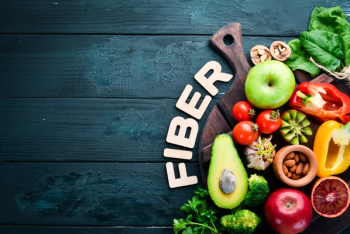
- Nutritional Outlook Vol. 26 No. 6
- Volume 26
- Issue 6
The future of natural preservatives
Some of the best options for natural preservatives are those that don’t sound like chemicals but provide high efficacy in extending preservation.
The word food preservatives may suggest all types of unhealthy things—artificial food colors and flavors, scary-sounding packaged ingredients. But it wasn’t always this way. Food preservatives have been used for centuries around the world to keep food edible. Ancient cultures used salt, honey, and sugar to naturally preserve foods. Fermentation—think wine, kombucha, yogurt, and kimchi—has long been a popular method, as are drying, smoking, canning, and freezing in more modern times.
In today’s food manufacturing plants, more companies are responding to consumer demand for fewer artificial preservatives. The U.S. still has a long way to go to catch up to the traction its European cousins have made in this area. Many preservatives currently used in the U.S. are banned in countries in Europe.
Can Preservatives Be Natural and Effective?
Natural preservatives can be great alternatives, but there have been concerns about their effectiveness. Like many ingredient categories, the journey to better natural preservatives is always evolving, says Bo Wei Li, application development specialist at Foodology by Univar Solutions (California).
“As more experiments were conducted with success, now data is available for extended review,” Li says. And formulators can make sound decisions from the very early stage of product development. “Natural preservatives have been proven effective and are making their way to being mainstream,” Li says.
According to a Future Market Insights report, the global food-preservative consumption market is expected to continue experiencing significant growth,with a 6.8% CAGR predicted between 2022 and 2032.1 And though synthetic preservatives might operate more efficiently, the report states, consumers are opting for natural ingredients more often. That’s fueled the expansion of this submarket.
Some of the best options for natural preservatives are those that don’t sound like chemicals but provide high efficacy in extending preservation, says Brenda Zavala-Livengood, senior marketing specialist, Kemin Food Technologies North America (Des Moines, IA). “From a food-safety perspective, vinegar is a great option,” she notes. It’s familiar to consumers and helps inhibit the growth of pathogenic microbes. Using it alongside ingredients like rosemary or green tea extract helps maintain a product’s color and flavor freshness. “When used together as a synergistic blend, these become an even more effective solution for preservation,” she explains.
Trends in Natural Preservatives
While they might not garner any TikTok videos or make Instagram blow up, certain ingredients in natural preservatives are enjoying the hot seat—in a good way—right now. “Preservatives derived from fermentation or plant extraction are commonly selected for natural preservation,” Li says. These have been formulated in a variety of food and supplement products. Examples of these include cultured sugar, cultured starch, or buffered vinegar for microbial control, states Li. Acerola extract is a popular choice now for oxidation control.
Likewise, a few old-school preservatives are on their way out, Li believes. “Potassium sorbate and sodium benzoate are considered synthetic preservatives by most of the food manufacturers and consumers,” he states. Though these are still widely used in the food industry, in his opinion they’ll gradually be phased out and converted to more natural and clean-label options. “Especially for new products, I believe that natural preservatives will be chosen and formulated,” Li says.
Zavala-Livengood notes a change over the past decade in this regard. “What once used to be acceptable is no longer the case,” she notes. “However, with no federal definition of natural or clean label, this will continue to shift as USDA/FDA decide on any mandates that would affect how manufacturers and processors can formulate naturally.”
Food and Supplement Formulators Take Note
What’s most important for food and supplement formulators to know about natural preservatives? Food safety reigns above all. Taste and texture obviously won’t matter if safety is compromised, says Li.
When formulators look to create a new product or change an existing one, it’s important to consider several key factors, he says. Product pH, water activity, processing methods, storage conditions, and target shelf-life are essential considerations. “Preservatives are recommended to be added in most cases to extend product shelf life and build an extra hurdle of protection,” he says.
Also, “Formulators should keep in mind that just because one ingredient solution worked in an application, it won’t necessarily work in another,” reminds Zavala-Livengood. “Food products are complex systems that require formulators to find individualized solutions.”
With consumers more knowledgeable about health and self-care, it makes sense that they are also hungrier for natural food and supplement preservation options.
Reference
- Future Market Insights. Food Preservatives Market to Reach US$ 52.1 Bn by 2029. Published April 5, 2022.
https://www.globenewswire.com/en/news-release/2022/04/05/2416906/0/en/Food-Preservatives-Market-to-reach-US-52-1-Bn-by-2029-Comprehensive-Research-Report-by-FMI.html
Articles in this issue
about 2 years ago
The ongoing evolution of plant-based cheeseover 2 years ago
Why is apple cider vinegar so popular?over 2 years ago
Plant-and-animal protein blends are on the riseover 2 years ago
Prebiotics are no longer “niche” in Asia-PacificNewsletter
From ingredient science to consumer trends, get the intel you need to stay competitive in the nutrition space—subscribe now to Nutritional Outlook.





